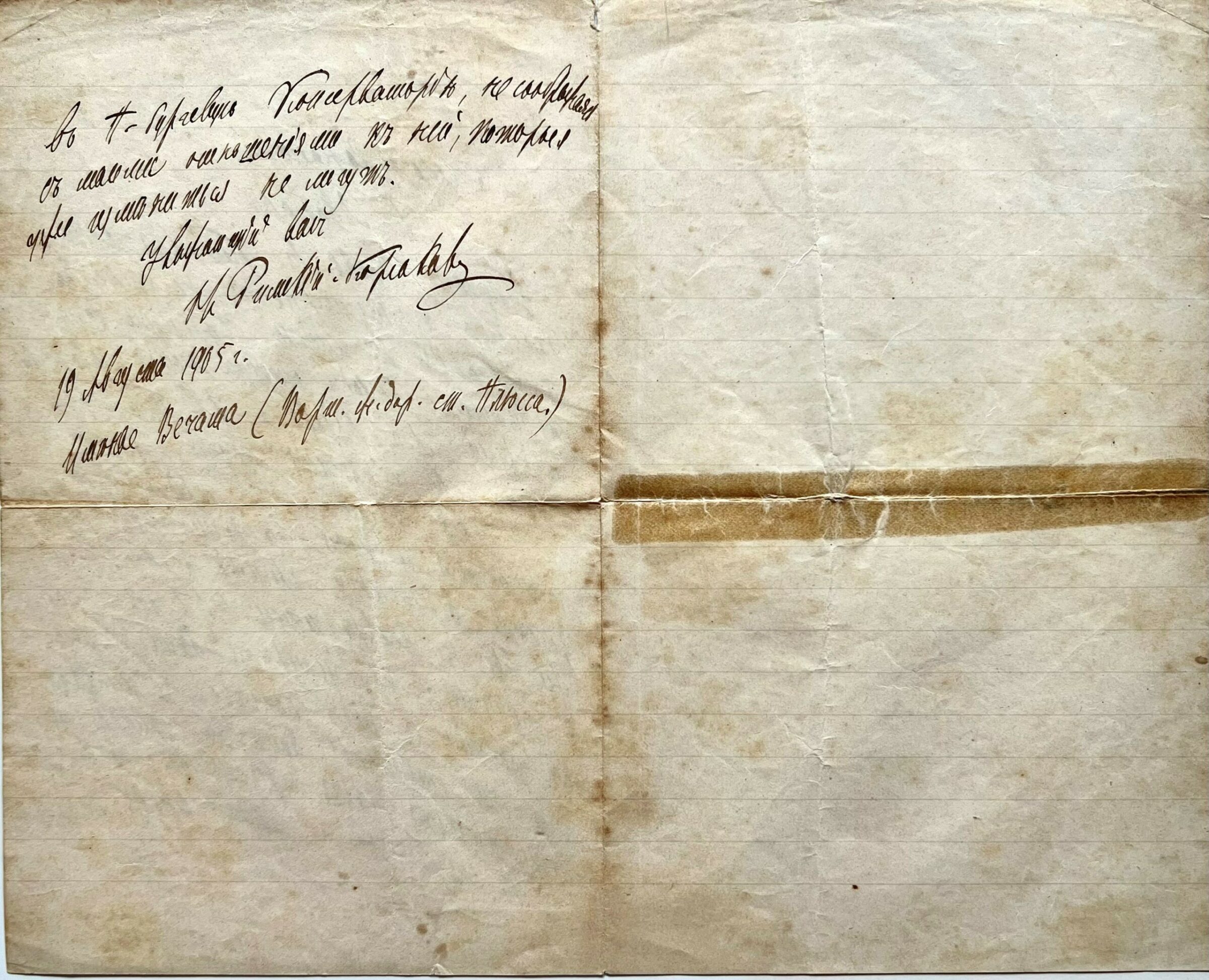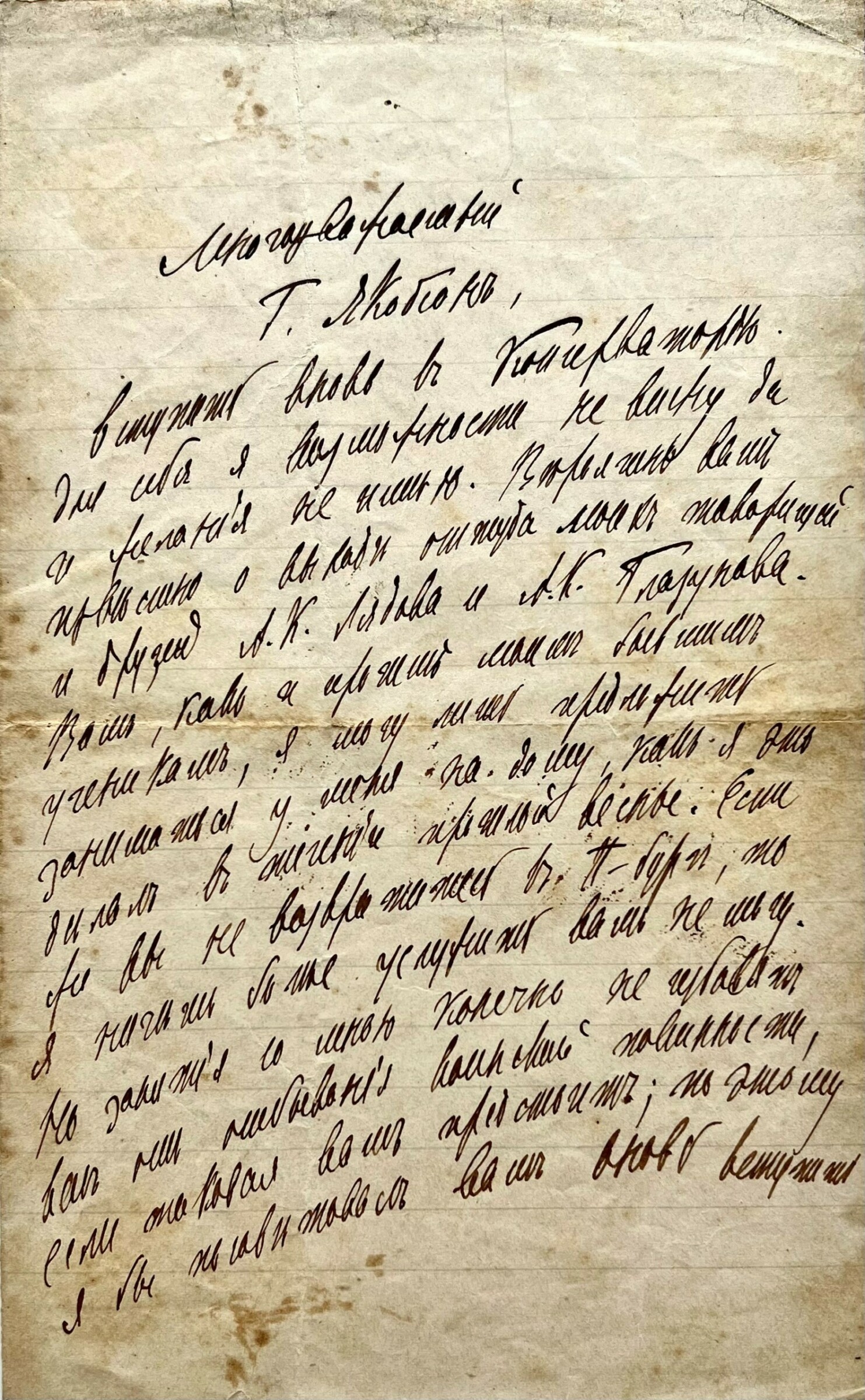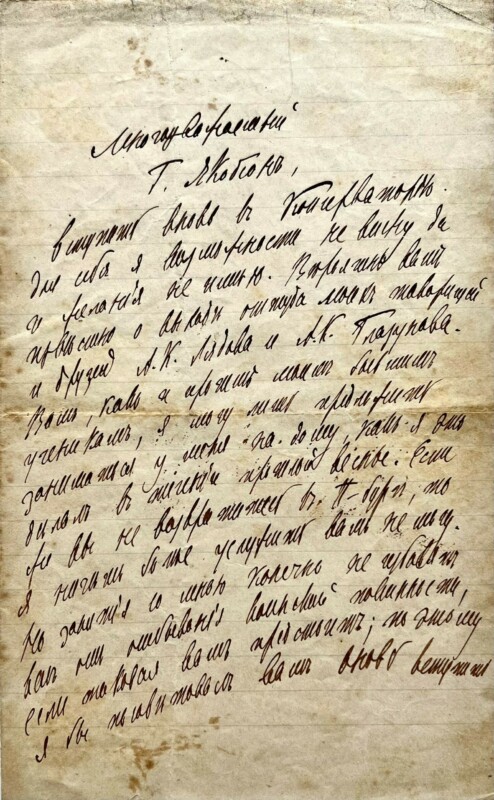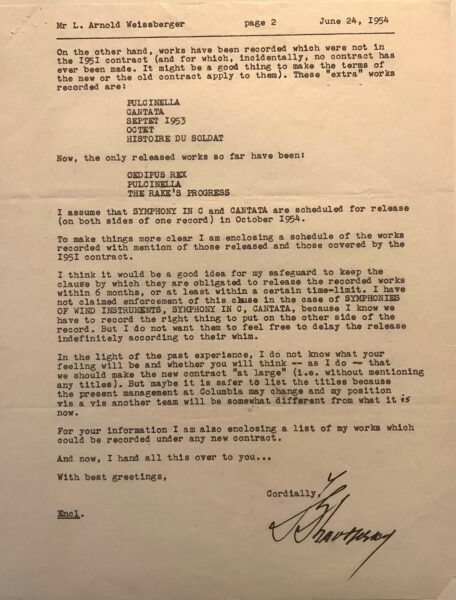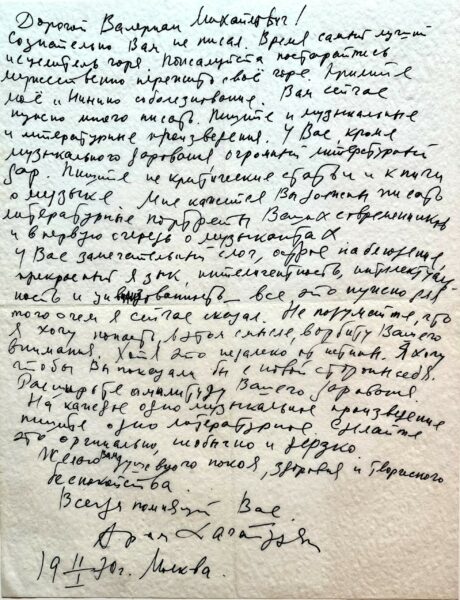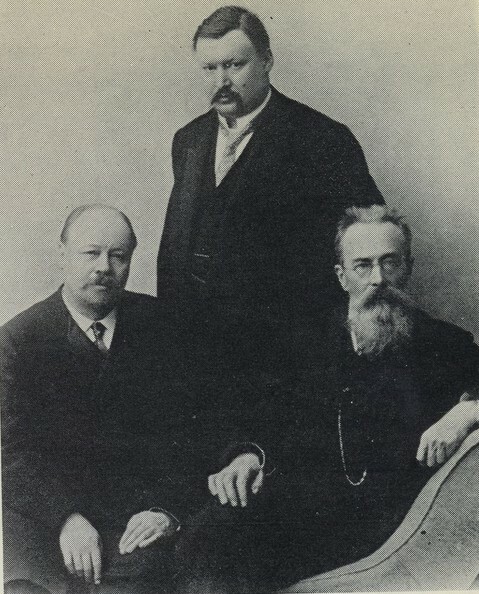
Alexander Glazunov, Anatoly Liadov and Nicolai Rimsky-Korsakov
A member of a group of St. Petersburg composers known as The Five, Rimsky-Korsakov was a prolific composer of operas, symphonies, marches, concerti, songs, chamber music, and folksong collections. His best known-work, Scheherazade, an orchestral work inspired by The Book of One Thousand and One Nights (better known as The Arabian Nights), was composed in 1888. It became extremely popular and in 1910 the Ballet Russes staged Scheherazade with choreography by Michel Fokine and a libretto by Fokine and Léon Bakst.
Our letter was written in the wake of Rimsky-Korsakov’s dismissal on April 5, 1905, from the faculty of the Conservatory, which he had joined in 1871. During the Russian Revolution of 1905 and its subsequent violent suppression, Rimsky-Korsakov was an outspoken defender of students’ right to protest. After penning several open letters, including one which called for the resignation of the Conservatory’s director, he was expelled from the faculty, after which he defiantly continued to teach students in his home, as demonstrated in our letter. In solidarity with Rimsky-Korsakov, Alexander Glazunov (1865-1936) and Anatoly Lyadov (1855-1914) also resigned their posts as the Conservatory as noted in our letter. Eventually rehired, the institution was renamed in Rimsky-Korsakov’s honor in 1944.
A child prodigy, Glazunov’s talents came to Rimsky-Korsakov’s attention through Mily Balakirev, a fellow member of The Five. Rimsky premiered the 16-year-old’s first symphony in 1882, taking him as a pupil, becoming his mentor and forming a close friendship with him. Glazunov became a conductor and one of Russia’s leading composers. At the end of 1905, he was elected director of the St. Petersburg Conservatory, where he remained until the 1917 revolution. “Within Russian music, Glazunov has a significant place because he succeeded in reconciling Russianism and Europeanism… he remains a composer of imposing stature and a stabilizing influence in a time of transition and turmoil,” (The New Grove Dictionary).
Another of Rimsky-Korsakov’s students at the Conservatory was Anatoly Lyadov (1855-1914), who became associated with The Five, his talents being extolled by Modest Mussorgsky. He began teaching at the St. Petersburg Conservatory in 1878 where his students included Sergei Prokofiev. It was Lyadov who introduced Glazunov to Russian timber magnate Mitrofan Petrovich Belyayev, who later became his patron and publisher as the head of the M.P. Belyayev Publishing House in Leipzig. Later, Glazunov, Nikolai Rimsky-Korsakov and Lyadov helped choose works for the firm to publish and helped form the influential Belyayev circle, the successor of The Five, which championed a Russian style of music tempered by Western influences. An accomplished composer of shorter works, Lyadov is best remembered for his tone poems based on Slavic folktales, Baba Yaga, Kikimora and The Enchanted Lake.
Our letter is written from Vechasha where Rimsky-Korsakov had a summer home (now a museum) from 1894-1905 and worked on the operas The Christmas Night, Sadko, The Tsar’s Bride, The Tale of Tsar Saltan, and The Legend of the Invisible Town Kitez.
Written on a folded and lined sheet of paper; some staining and wear at the edges with a tape repair on a fold of the blank integral leaf. The original (?) hand addressed envelope (in poor condition) is included. In good condition.

